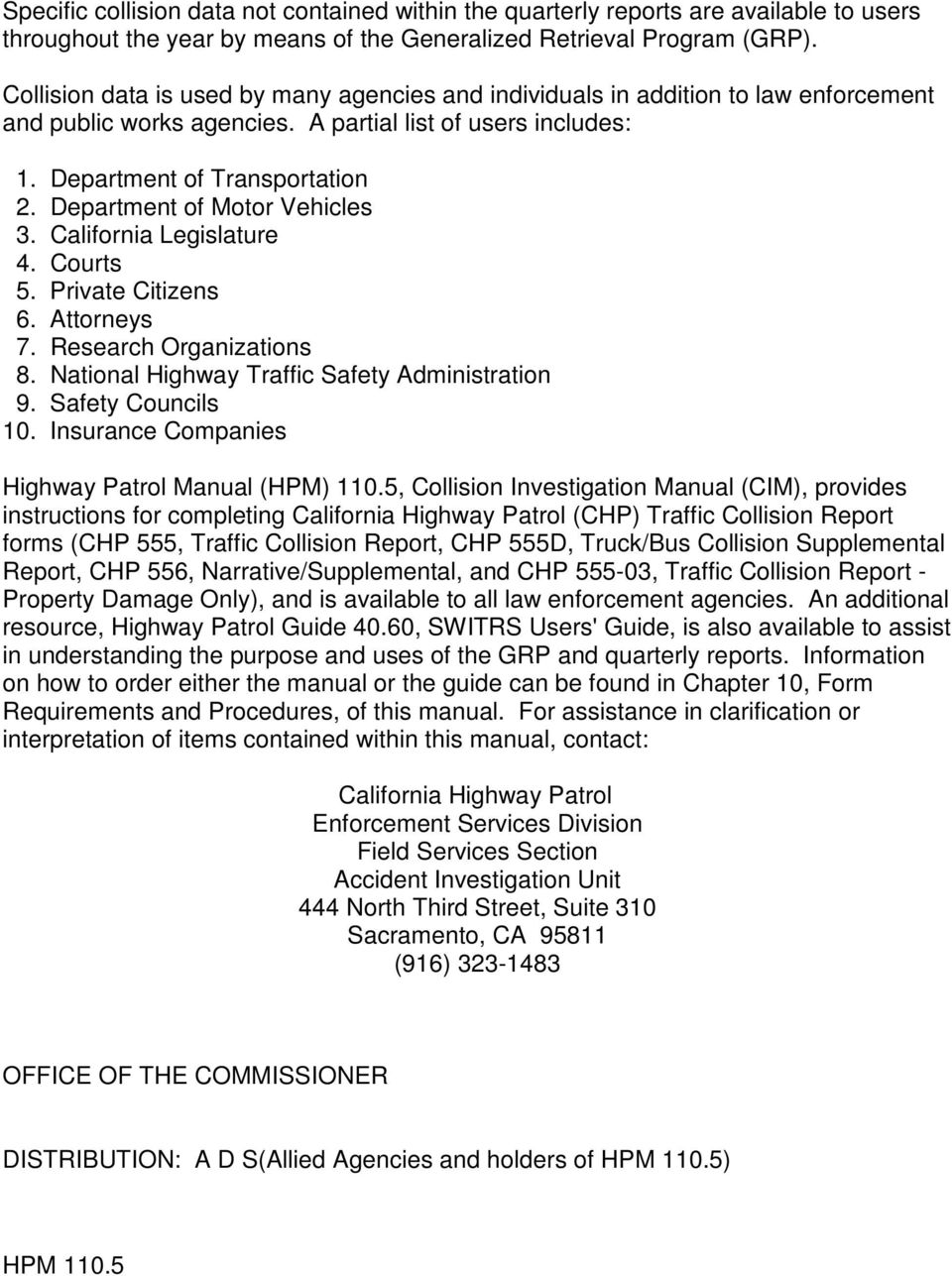Chp Motor Carrier Safety Compliance Handbook
In an effort to reduce the number of crashes related to commercial motor vehicles, CVE officers perform safety inspections on commercial vehicles and enforce traffic with an emphasis on violations by commercial motor vehicles and passenger vehicles interacting with large trucks. The primary purpose of CVE’s weight enforcement program is to protect Florida’s highway system and bridges from damage from overweight vehicles. Xerox Phaser 6010 Service Manual more. CVE conducts vehicle weighings at its 20 fixed weigh station locations and mobile enforcement with portable scales statewide. In 2011 officers conducted more than 110,000 commercial vehicle inspections placing more than 14,000 vehicles and more than 5,000 drivers out of service for critical safety violations. Pay your citation online Please note: some of these links will open another window and you will leave the DHSMV/FHP website. Epson Tm-u220 Driver Windows 7 here. Effective January 1, 2013 there are additional methods to determine if a CDL is required Beginning January 1, 2013, statutory changes modifying Florida Statute 322.54 became effective. The change allows for an additional method to determine driver license requirements.
Hp Color Laserjet Cp5225 Driver Win7. From the Chairman Dear Motor Carrier: The PUCO has prepared this handbook to assist you in your efforts to understand and comply with the state and federal motor carrier safety regulations.
In addition to using the Gross Vehicle Weight Rating as the sole determination factor, the actual weight of the vehicle can be used to make the determination. There will be circumstances where the GVWR of one of the vehicles and the actual weight of the other(s) is used to determine if a CDL is required.

Also, if the actual weight exceeds the GVWR, the greater weight will be used. For more information please go to. International Registration Plan / International Fuel Tax Agreement Please contact the Bureau of Motor Carrier Services at (850) 617-3711 for information on International Registration Plan tags and International Fuel Tax Agreement decals. Click on the following link to be directed to the Department of Highway Safety and Motor Vehicles website’s “Frequently Asked Questions” about I.R.P. Public Records Public records and inspection reports may be requested by contacting the following governing offices: Northern Region – Troop I Counties: Escambia, Okaloosa, Santa Rosa, Walton, Bay, Calhoun, Gulf, Holmes, Jackson, Washington, Gadsden, Leon, Liberty, Madison, Taylor, Wakulla, Jefferson, Franklin, Columbia, Dixie, Hamilton, Lafayette, Suwannee, Citrus, Hernando, Hillsborough, Pasco, Pinellas, Polk, Sumter, Alachua, Gilchrist, Levy and Marion. Rosanne Tanner: 850-617-2295 Southern Region – Troop J Counties: Flagler, Seminole, Volusia, Baker, Bradford, Clay, Duval, Nassau, Putnam, St.
4 Groups Sanguine 4 Regimes Pdf Printer. Johns, Union, Brevard, Lake, Orange Osceola, Charlotte, Collier, DeSoto, Glades, Hardee, Hendry, Highlands, Lee, Manatee, Sarasota, Indian River, Martin, Okeechobee, Palm Beach, St. Lucie, Broward, Miami-Dade and Monroe. Jennifer VanIterson: 386-624-0606 Requests for Post-Crash Inspection Reports must include the following information: Date of crash County the crash occurred in Name(s) of the motor carrier(s) involved Regulation Forms • (pdf 414kb) • (pdf 414kb) • (pdf 19kb) • (pdf 21kb) • (pdf 14kb) Unified Carrier Registration (UCR) The Unified Carrier Registration Act which became effective January 1, 2007, replaces Single State Registration which was repealed December 31, 2006. While Florida does not participate in the Unified Carrier Registration (UCR), it does affect both for hire and private motor carriers that engage in transportation outside of Florida. Florida based carriers that are required to register should register with a participating state in which you have an office or with the participating state nearest your principal place of business. For more information on UCR please visit Weight Enforcement The primary purpose of the Weight Enforcement program of Commercial Vehicle Enforcement (CVE) is to protect highway system pavement and structures (bridges) from excessive damage due to overweight and oversize vehicles.